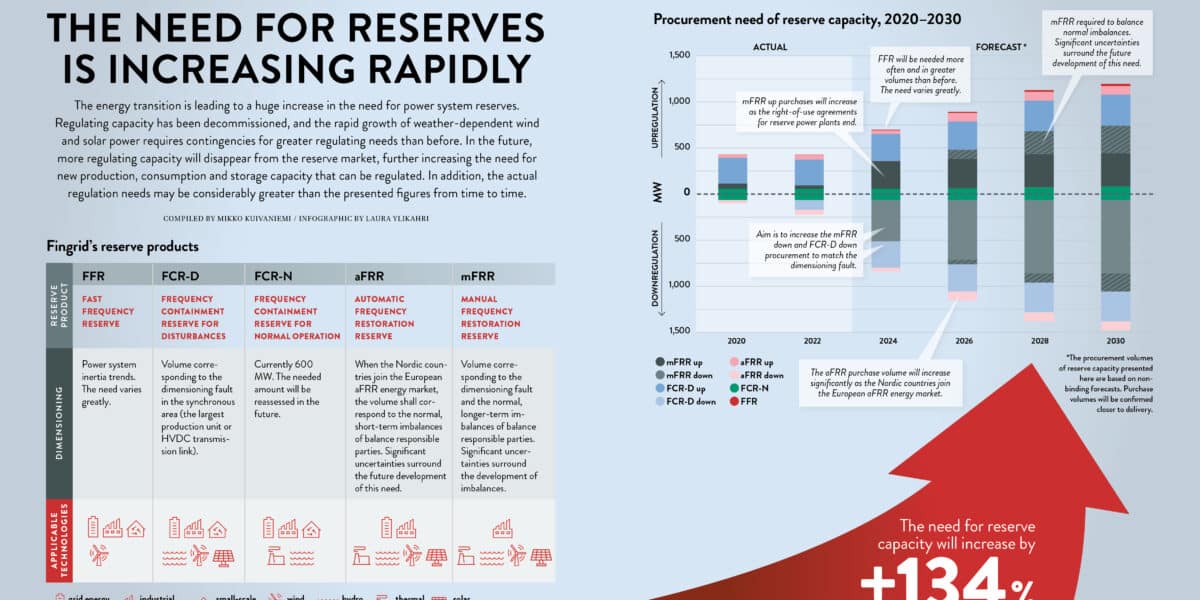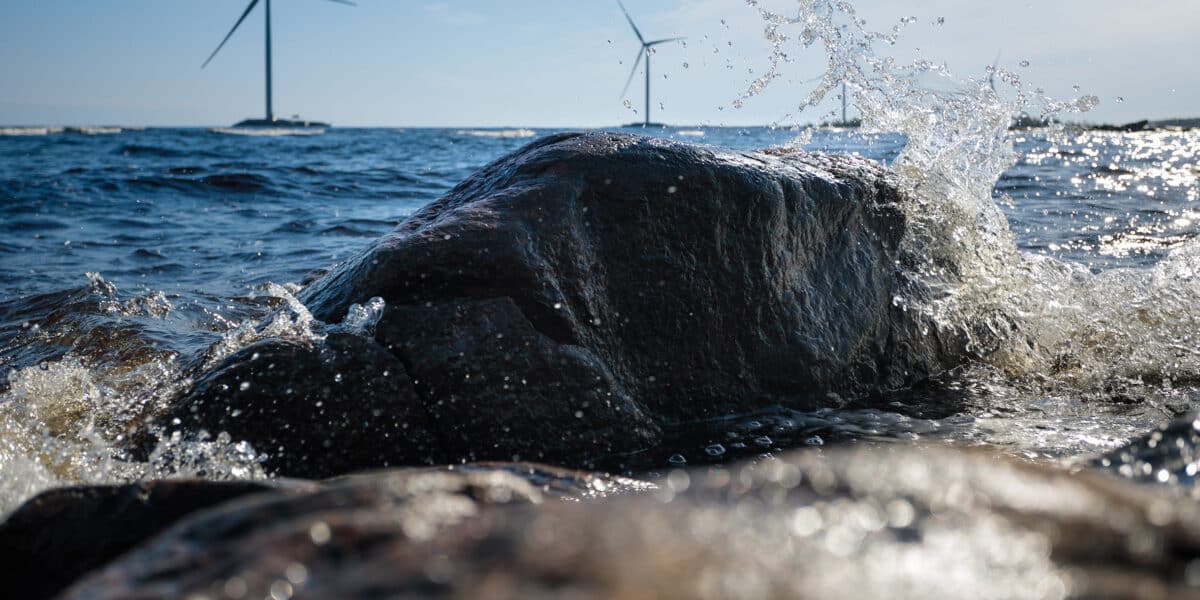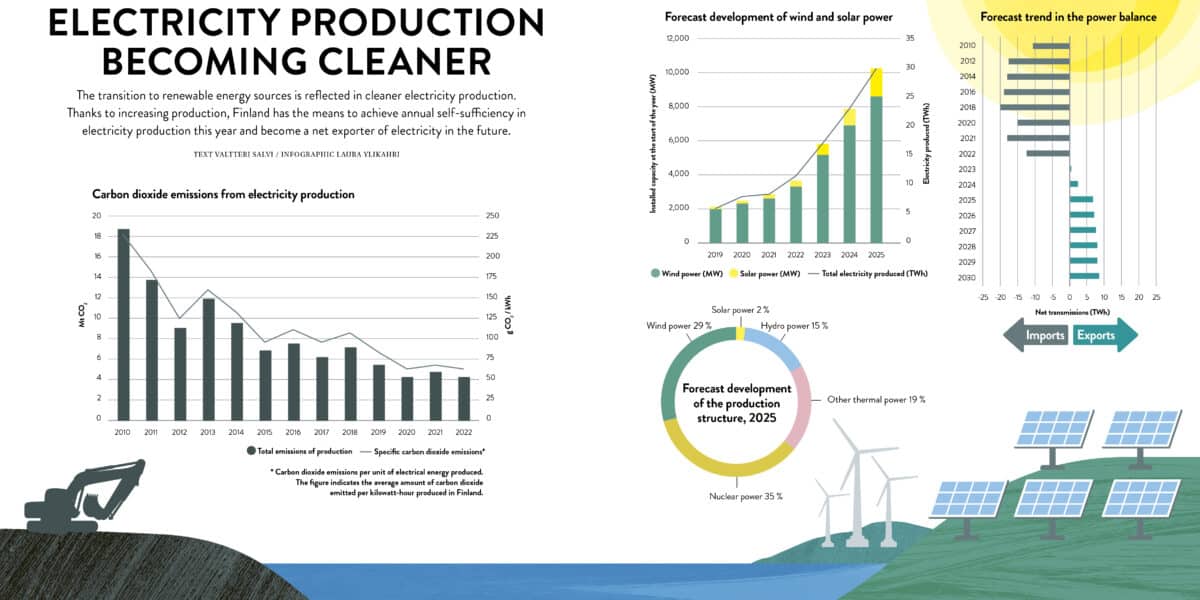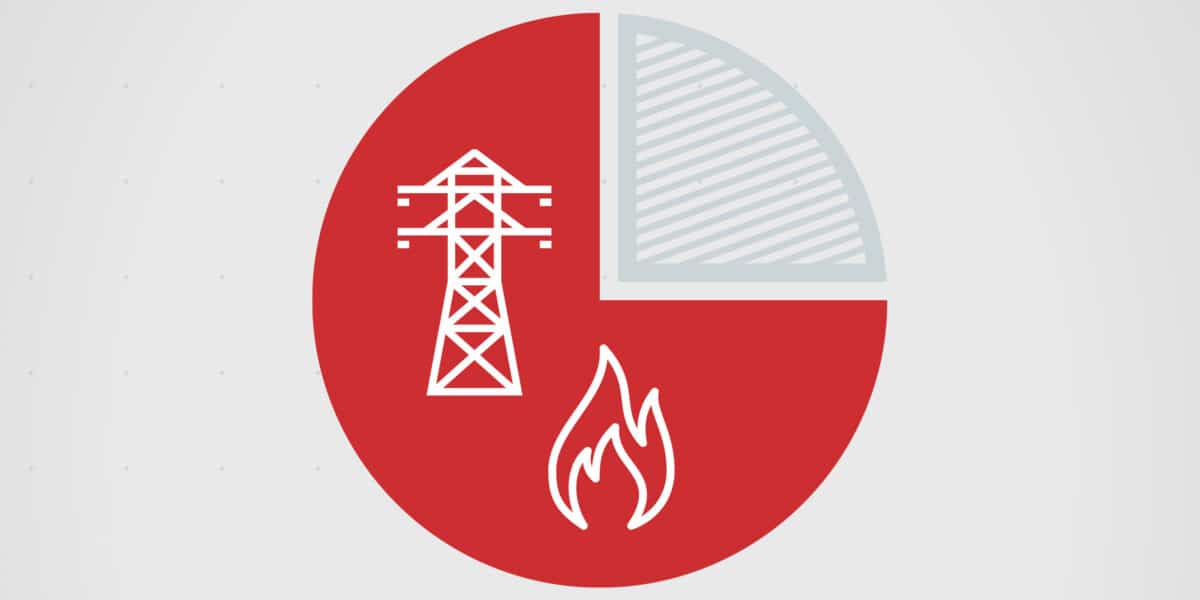
Welcome to the most attractive clean energy market in Europe!
Fingrid makes sure electricity is always available. Clean, reliable and affordable.

Fingrid makes sure electricity is always available. Clean, reliable and affordable.

The Balance Management Unit at Fingrid’s main grid control centre is
responsible for keeping the power system of Finland in balance in real time.

The energy transition is leading to a huge increase in the need for power system reserves.

As much electricity must be produced as is consumed at any given moment. It is a simple equation, but the solution is complex.

The power system needs reserves to keep electricity production and consumption balanced every hour of the day and maintain a stable grid frequency. Fingrid hopes new players will join the electricity reserve markets – now, getting involved is easier than ever.

The transition to renewable energy sources is reflected in cleaner electricity production. Thanks to increasing production, Finland has the means to achieve annual self-sufficiency in electricity production this year and become a net exporter of electricity in the future.

The hydrogen economy represents a great opportunity for Finland, driven by clean electricity production, the rapid growth of wind power, and a reliable main grid. The green hydrogen market will also require a new hydrogen transmission grid.

Air conditioning is essential on hot summer days. Although cooling machines are not particularly expensive, Teemu Kettunen, Specialist at Motiva, advises using them in moderation.

The energy markets in Finland and throughout Europe are undergoing a transformation. One of the European Commission’s proposals is to sever the link between gas and electricity prices.

Finland will transition to a 15-minute imbalance settlement period on 22 May 2023, when the imbalance settlement system will begin using a 15-minute resolution instead of one hour. The centralised information exchange unit, datahub, and most energy metering will also switch to a 15-minute resolution.